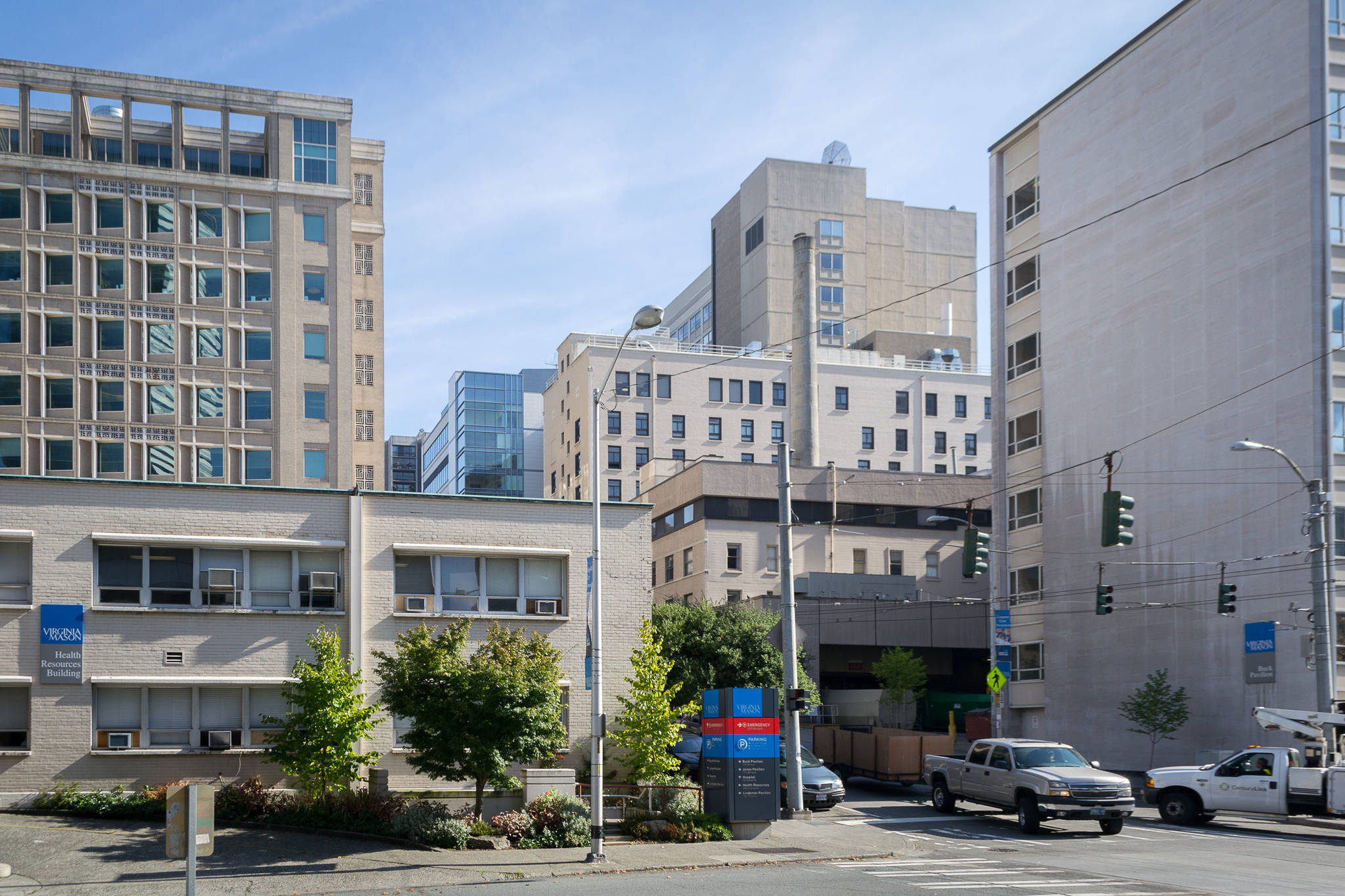Virginia Mason Medical Center’s head of infectious disease is worried about running out of medical supplies if the COVID-19 outbreak worsens.
The health care provider is one of the largest in Washington state, heading hospitals and clinics around King County and across Puget Sound. Dr. Christopher Baliga, chief of infectious disease at Virginia Mason, said since the COVID-19 outbreak began, they have managed to treat patients according to Centers for Disease Control (CDC) guidelines. But with uncertainty in supply lines, they are trying to conserve as much as they can.
“We are seeing our supplies start to thin,” Baliga said.
As of March 5, the CDC website was recommending hospitals provide a face mask and hand sanitizer for patients who are suspected to have COVID-19 upon arrival in health care facilities. Staff treating patients should also wear face masks, which can filter out pathogens. Gowns, eye protection and disposable gloves are also recommended.
Baliga said he’s concerned about the effects of the COVID-19 outbreak continuing to spread across the country.
Baliga said much of their medical gear is made in China, and particularly in areas under quarantine, which means factories there aren’t producing them, “further stretch[ing] our supply lines.”
Virginia Mason, as well as other hospitals, have been coordinating through the Northwest Healthcare Response Network. The organization has been helping to direct supplies to health care facilities that need them.
Mask shortages have been reported nationwide by NPR, which said the mask producing company 3M has received requests for 1.5 billion masks during the current outbreak. The federal government is further looking to buy 500 million masks, which could take “months or years to receive.”
Baliga said there are different tiers for how the outbreak could progress. The worst case scenario would be similar to what happened in Wuhan, where hospitals were overrun, and patients who needed care couldn’t get it.
A moderate scenario would mean there is space for everyone in the hospitals, but the level of care would be low because of supply and medicine shortages as well as staff falling ill. A compartively better scenario would be if hospitals were full, but the standard of care remained stable, he said.
Baliga said the U.S. health care system usually functions near capacity, even in good times, so it wouldn’t take much to overwhelm it.
However, the outbreak could be worse, Baliga said. There are pockets of outbreaks, such as the Kirkland Life Care Center, but it doesn’t seem quite as widespread as Baliga thought it may be.
The big jump would be the COVID-19 outbreak moving from known sources to community transmission. In an email, the Washington State Department of Health said this may already be happening, but it’s unclear to what degree.
“We do have some community transmission. Mitigation measures are aimed at slowing the spread of disease,” the email said.
Several cases in King County have already been transmitted by unknown exposure, including two patients in their 20s who are hospitalized in Issaquah.
If there is broad community transmission, then rapid testing won’t help head off the outbreak, Baliga said. However, if there isn’t widespread community transmission, then testing can help identify people with the disease, and health officials can isolate the patients to help limit exposure.
Baliga said he thinks public health departments aren’t ready to say containment efforts are over, and said public health officials are approaching it from both angles. He thinks health officials are hoping they can contain the outbreak, but are preparing for the possibility that they can’t.
Several schools in the area have already shut down, including the entire Northshore School District, which could be closed for up to 14 days.
Testing for the virus is set to increase because the state has allowed the University of Washington to begin testing samples in addition to the state-run lab in Shoreline. Gov. Jay Inslee announced March 5 that the state can order private insurers to waive testing costs in some cases. The CDC this week also expanded its criteria for who can be tested, saying doctors can recommend a COVID-19 test.
This means the number of reported cases will likely spike, said King County Council member Kathy Lambert, although she’s not expecting to see infection numbers like those in China.
“We haven’t had something of this magnitude before, with something that we have no immunities to and we have no vaccine for, and we have no special treatment for,” Lambert said.
Depending on how the outbreak progresses, further quarantine measures could be implemented, such as shutting down more schools or large public events.
The Seattle and King County Public Health department recommends avoiding large events or gatherings and allowing employees to work from home. As of the afternoon of March 5, the department does not recommend closing schools unless there has been a confirmed case there.
Talk to us
Please share your story tips by emailing editor@kentreporter.com.
To share your opinion for publication, submit a letter through our website https://www.kentreporter.com/submit-letter/. Include your name, address and daytime phone number. (We’ll only publish your name and hometown.) Please keep letters to 300 words or less.

